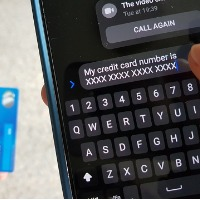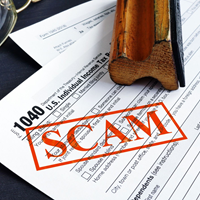Employees of Duke Credit Union will not call you and ask you to provide account information. Duke Credit Union already has this data! If you receive a call from Duke Credit Union's phone number and/or anyone claiming to be an employee of Duke Credit Union, it could be phone phishing. Do not provide any account information. Disconnect the call and phone Duke Credit Union directly (919) 684-6704.
Be extremely careful about responding to any request for personal identifying information. Never give out any of the following details in response to unexpected or suspicious contacts:
- Account Numbers
- Social Security Numbers
- Mother's Maiden Names
- Passwords, Passcodes
- Other Identifying Information
Use caution if you are pressured to share personal information or make a payment immediately. Stop and evaluate the situation. If something doesn't feel right, it probably isn't.
- Never provide account information over the phone or via text or email. Hang up or do not communicate via that channel.
- Never wire or send money in response to a phone call, email, text or online message.
- If someone asks you to use a bitcoin machine, a prepaid debit card or a gift card to pay money that they say you owe, you are being scammed.
- Don't answer unrecognized calls, emails or texts. Let calls go to voicemail and delete messages.
- Don't click on embedded links from unknown senders.
- Research companies you are trying to pay online. Use secure connections for transmitting financial information.
- Be aware of emotional pleas and appeals to the heart. If someone claims to be a loved one in trouble, or that one of your loved ones is in trouble, hang up and contact a family member directly to help you determine what's going on and/or contact the police.
- Be cautious on social media, make sure your privacy settings prevent strangers from accessing information about you or your family.
- Legitimate public officials will not call to threaten you with arrest if you don't show up for jury duty or fail to pay a fine immediately. Real notices for jury duty arrive by mail.
- Before a debit is turned over to a debt collector, the IRS will send you multiple letters. A debt collector working for the government will require your payment to be made at irs.gov or via a check made out to the U.S. Treasury that is mailed directly to the IRS.
- If immediate payment is demanded over the phone with threats of a lawsuit, arrest, or physical harm, it is a scam.











